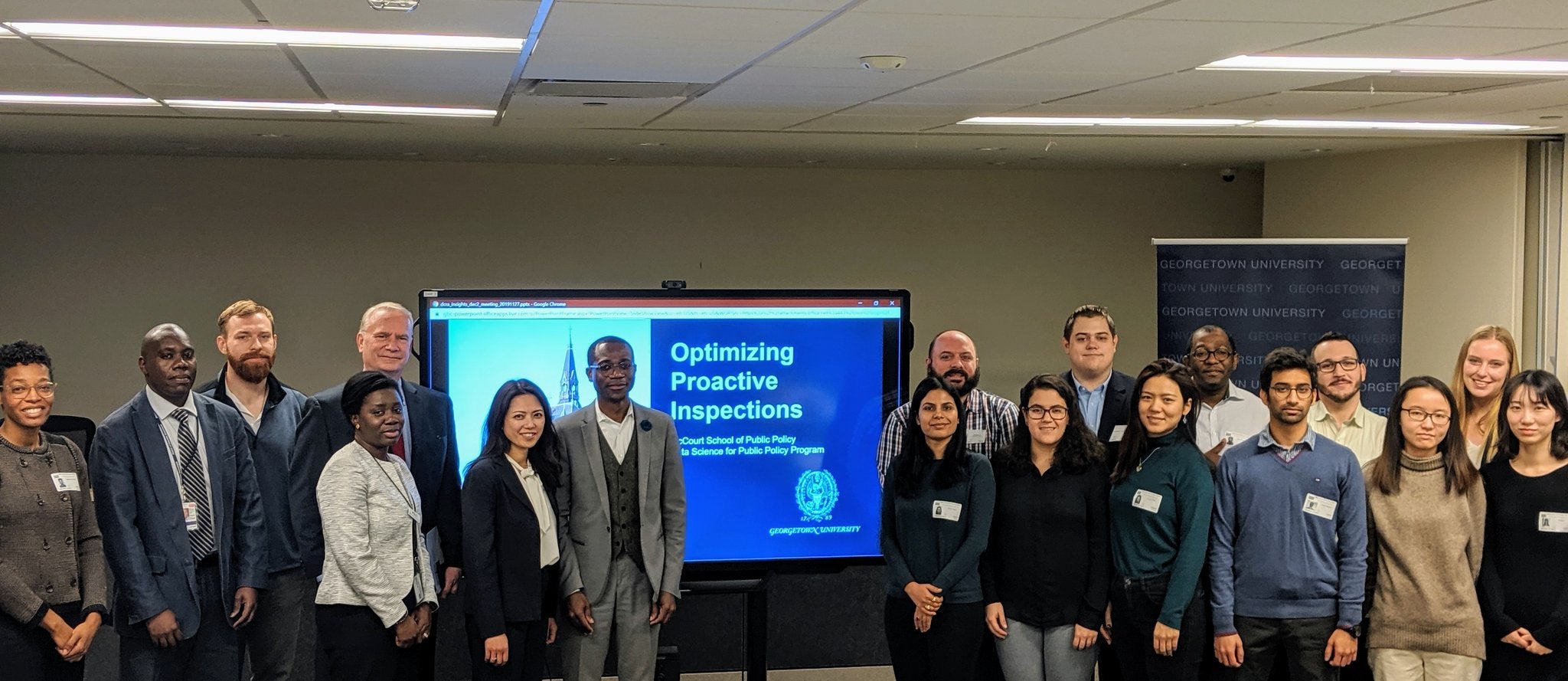Shaping the Policy Conversation
In addition to cutting-edge technical research, the Massive Data Institute seeks to impact the policy conversation through partnerships with government and research projects focused on the most pressing public policy issues.
Policy-Focused Research
Forced Migration
This interdisciplinary research project develops algorithms, methodologies, models, and tools to help policy makers better understand potential forced migration. Specifically, this project explores how the use of ‘big data’ can inform the development of near real-time models for forced displacement decision-making.
The #Metoo Movement
MDI is developing a toolkit and visual analytic portal that generates descriptives about the online conversation. This project is the first large-scale effort to characterize the first year of the movement by building an analytic engine that combines outputs from different inference algorithms to understand the population and conversation taking place. These types of platforms and tools are necessary for a collective understanding of sexual assault, for reducing our collective tolerance for it, and for developing evidence that can be used to impact public policy.
Place-Based Indicators
The Place-Based Indicators Project: Designing Standard Measures of Community Impact seeks to advance easy access to high quality place-based indicators that use administrative data, federal statistical data, private data, open data, and anything in between. We are working to identify “blue ribbon” indicators, improve existing indicators and unlock new indicators that anyone, anywhere can use to understand the problems our communities are facing and how we can best solve them.
Privacy Perspectives
Using big data to inform policy can be transformative, with analyses that often represent the entire population or allow data disaggregation to study small groups. This requires the responsible use of big data, including privacy protections when accessing data and publishing results to minimize potential harms to individual or group interests. Traditional methods to protect privacy include suppression, swapping, and rounding to prevent an individual or group from being singled out in published data. Newer, more powerful, methods to protect privacy have emerged in the past few decades and continue to evolve.
At MDI, we have observed an apparent disconnect between data controllers, data subjects, and data users about the need to increase privacy protections, the methods available to reduce re-identification risks, and ways that privacy-protected data affect accurate inferences. We intend to stimulate discourse about privacy – clarifying what must be protected, how it can be protected, and why increased privacy protections are needed, through our publications and tools.
- Publications about Privacy Preserving Methods
- Tools and Publications about the 2020 Census
- A Research Agenda for the ACS and Population Estimates
- The Common Denominator – details coming soon!
Our goal is to provide a shared understanding of the issues, options, plans, and impacts of upgrading privacy protections. Join the conversation – contact us at mdiresearch@georgetown.edu with comments or suggestions on future topics.
Government Partnerships and Data
From analyzing housing inspection data to campaign finance reform efforts in Seattle, MDI-affiliated scholars are partnering with government agencies and making use of newly available data to improve policy and governance.

